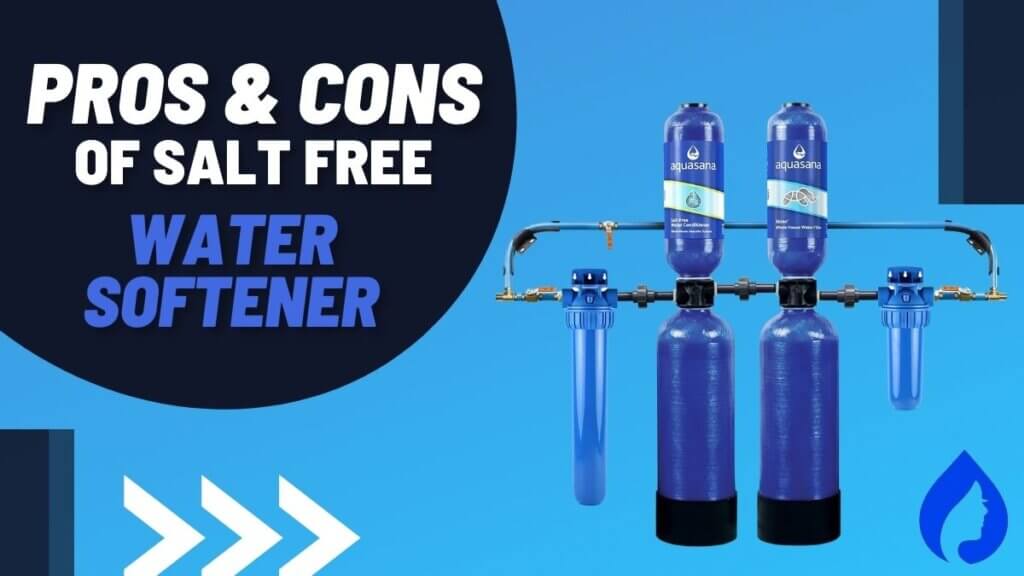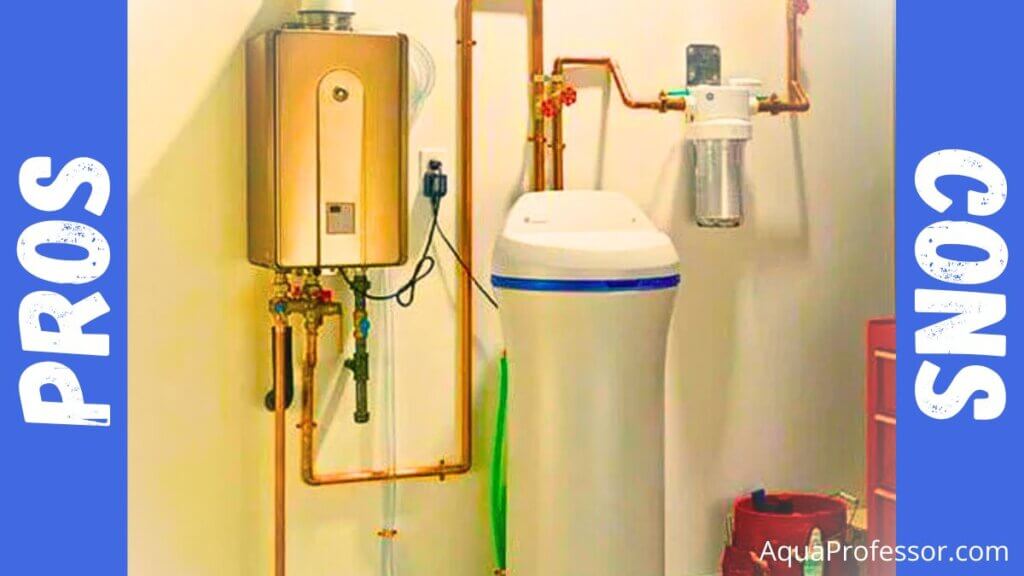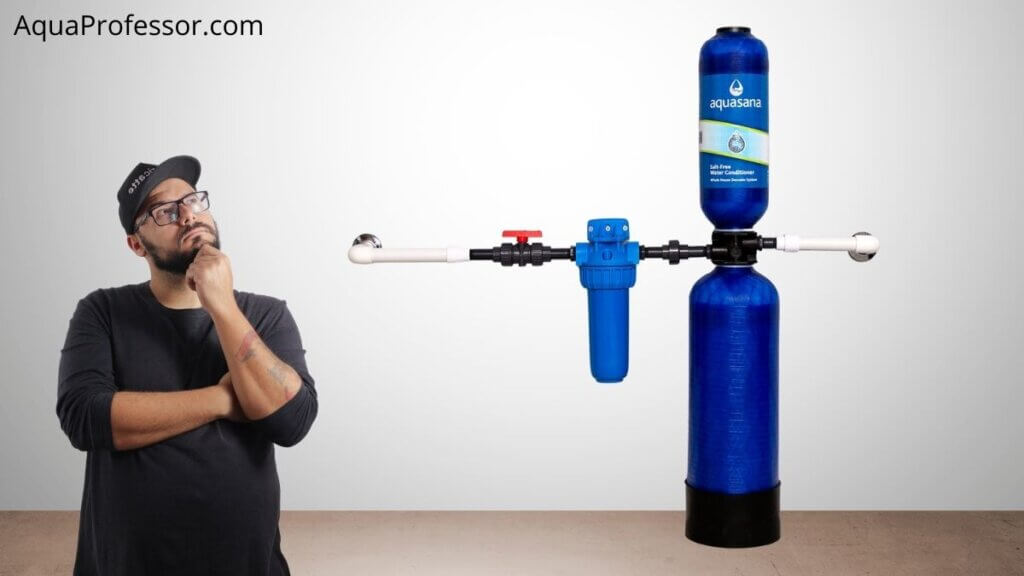
Salt-free water softeners are becoming increasingly popular, but are they worth the investment?
While they offer benefits like being eco-friendly and maintenance-free, drawbacks include being expensive and not being fully effective.
Continue reading for a detailed list of the pros and cons of salt-free water softeners to know if they can solve your hard water woes.
📈Evaluating Salt-Free Water Softeners: Pros and Cons

The main type of saltless water softener is water conditioner, which uses the conditioning process of Template Assisted Crystallization (TAC).
This method changes hardness minerals into harmless crystals, significantly reducing the formation of scales on your pipes and appliances, as justified by this study.
It’s important to note that this process does not remove hard water minerals like salt-based water softeners; it simply changes their form.
✅What Are the Benefits of Salt-Free Water Softeners?
Salt-free water softeners have several distinct advantages, making them an appealing choice for many homeowners.
❌What Are the Disadvantages of Salt-Free Water Softeners?
While salt-free water softeners have benefits, there are also a few disadvantages.
It’s worth noting that installing a salt-free system can be as challenging as installing a traditional one.
Note:
Again, measuring the performance of a salt-free water softener can be quite the head-scratcher as the water hardness remains the same.
So there’s no reliable way to test the working of conditioners. You can only observe the reduction of scales over time.
Also Read: Should You Use Softener Salt For Weed Removal?
🤔Key Takeaway: Do Saltless Water Softeners Really Work?

The effectiveness of a saltless water softener largely depends on your specific water conditions and needs.
For city dwellers living in rented or small spaces with low to medium water hardness, a saltless water softener can be an effective solution for water softening.
In such cases, where limescale buildup is the primary concern for water quality, this system can help maintain the health and longevity of your appliances and plumbing by preventing mineral deposits.
However, a saltless system might not be sufficient if you’re dealing with well water with high hardness levels.
In such situations, a traditional salt-based water softener is often more effective.
Follow this checklist:
It’s better not to buy a cheap system and suffer later on.
❓Pros And Cons Of Salt-Free Water Softeners: FAQs
Do salt-free water softeners soften water?
A salt-free water softener doesn’t soften the water in the traditional sense; instead, it conditions the water by changing the chemical structure of calcium and magnesium minerals into insoluble crystals.
This transformation prevents these minerals from adhering to surfaces, thereby reducing scale formation.
What does a salt-free water conditioner cost?
The cost of salt-free conditioners can vary significantly based on factors such as the specific model, brand, and complexity of your home’s plumbing system.
On average, you should pay between $500 and $3000 for one of these systems. This price range generally includes just the cost of the salt-free conditioner unit itself.
Remember that installation costs are often separate and can add to the overall expense, so it’s essential to factor this into your budget when considering a salt-free conditioner for your home.
What are sodium-free water softener pellets?
Sodium-free water softener pellets are an alternative to traditional salt pellets used in water softening systems.
Instead of sodium, these pellets use potassium chloride.
It is a perfect option for those on low-sodium diets or people concerned about sodium waste’s environmental impact.
Is salt-free water softener good for well water?
No, a salt-free water softener isn’t good for well water.
While these systems change the structure of hard minerals into harmless crystals that won’t adhere to surfaces, this process may not be sufficient to manage the high sediment and mineral content in well water.
So better to opt for the traditional salt-based water softener to tackle well water hardness.
Is salt-free water softener safe to drink?
Yes, water treated with a salt-free water softener is safe to drink. Since these systems don’t remove the hardness minerals but change their chemical structure, the water is essentially hard water, which is secure and can even have health benefits.
Adarsh is a Health & Nutrition Sciences graduate with expertise in environmental health. He is associated with ventures like Glacier Fresh Filter and Simpure Filter Systems. Through Aqua Professor, he intends to provide helpful information to every home to help them make smarter decisions.
